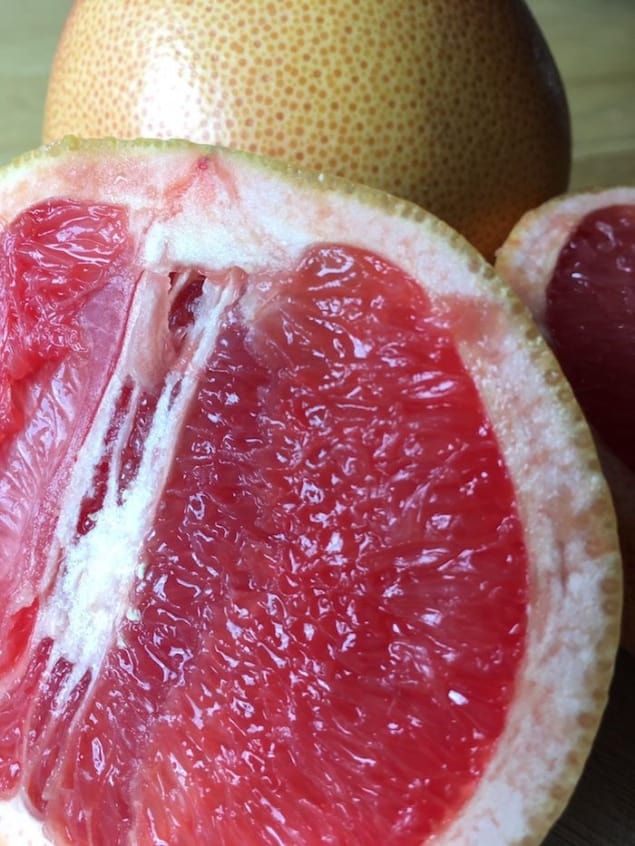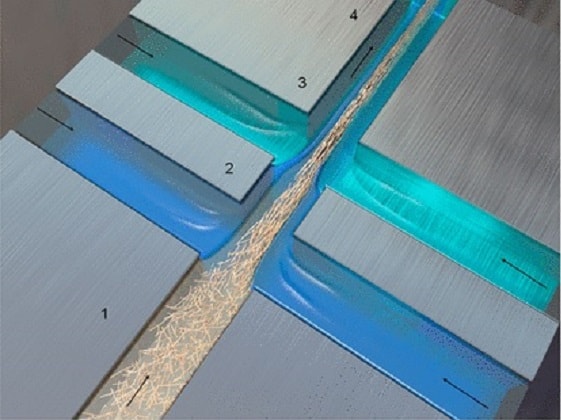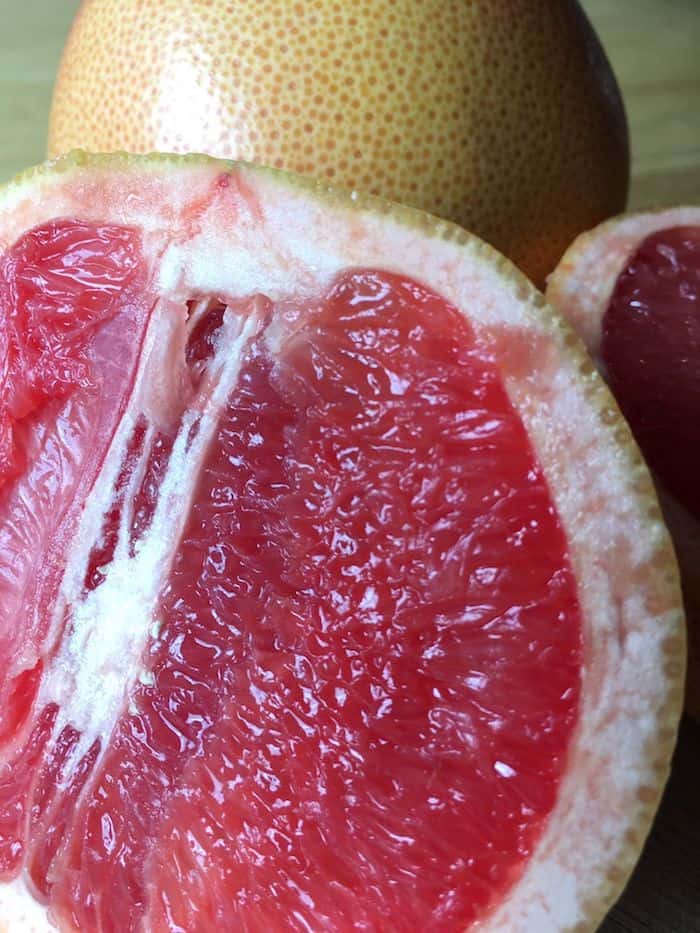
A highly deformable material that cannot be cut, even with tools such as angle grinders or power drills, could find use in a wide range of security and safety equipment. The new material – dubbed “Proteus” by its developers in the UK and Germany – is only 15% as dense as steel and is made from ceramic spheres encased in an aluminium sheath with a cellular structure that mimics that of grapefruit skins and mollusc shells.
Hierarchical structures – which contain the same base structure repeated at different length scales – are ubiquitous in nature, where they serve to protect plants and animals from extreme loads and impacts. A grapefruit, for example, can fall 10 metres without suffering damage to its pulp thanks to its tough outer skin and the open-pored cellular structure of its interior, which is reinforced with “struts” made of pith (parenchymatic cells). Similarly, the Arapaima fish, which is native to the Amazon river, resists the attack of razor-toothed piranhas thanks to its highly mineralized external layer of scales, which boast sinusoidal grooves with a periodicity that is out-of-phase with the spacing of piranha teeth. Molluscs have also evolved an extremely hard, fracture-resistant material for their shells. Known as nacre, it consists of aragonite tiles interlinked with an organic, flexible interlayer.
Dynamic interaction over passive resistance
In designing the new non-cuttable material, Stefan Szyniszewski, a materials engineer at Durham University in the UK, says that he and his colleagues at the University of Surrey, the University of Stirling, and the Fraunhofer Institute for Machine Tools and Forming Technology IWU in Chemnitz, Germany, were “intrigued” by the way the cellular structure of grapefruit and the tiled structure of mollusc shells prevent damage to the fruit or creatures inside. “These natural structures informed the working principle of our material, which is based on dynamic interaction with the applied load, in contrast to passive resistance,” Szyniszewski says.
While nacre and grapefruit pith are protective despite being made from relatively weak organic building blocks, Szyniszewski and colleagues chose to use hard alumina ceramics and a flexible aluminium foam matrix. To create the flexible matrix, they began by mixing aluminium powder with a foaming agent, titanium dihydride. They then consolidated this powder in a compressor and extruded it to produce dense rods of material, which they cut into smaller pieces. Next, they stacked the compressed aluminium powder rods in an orthogonal “grillage” pattern around the ceramic spheres. Finally, after enclosing the structure in a steel box using spot welds, they heated the entire ensemble in a 760°C furnace for roughly 15 minutes.
“Doubly destructive” effect
When they tried to cut the material, the researchers found that the cellular aluminium structure wrapped around the ceramic spheres had a “doubly destructive” effect on their tools. The first element of the effect comes about because the act of cutting creates high-speed motion at the points where the material interacts with the tool. Although the ceramic spheres can be partially cut, their vibrations quickly blunt the cutting disc or drill bit.
“The working principle of the material is based on local resonance and vibrations of the interface between the fast-moving cutting tools and the ceramics embedded in the metallic cellular structure,” Szyniszewski explains. “This interaction creates an interlocking, vibrational connection that resists the cutting tools indefinitely. The blade is gradually eroded and eventually rendered ineffective as the force and energy of the disc is turned back on itself and the cutting disc is weakened and destroyed by its own attack.”
But that is not all. When the spheres come into contact with the cutting tools, the researchers found that the spheres fragmented into fine micron-sized particles. These fragments then fill the cellular structure of the composite material, creating an abrasive interface that becomes harder as the speed of the cutting tool increases, thanks to interatomic forces between the ceramic grains. The adaptive nature of the material thus further repulses any attack.
“Like cutting through a jelly filled with nuggets”
The net effect, Szyniszewski explains, is like cutting through a jelly filled with nuggets. “If you get through the jelly, you hit the nuggets and the material will vibrate in such a way that it destroys the cutting disc or drill bit,” he says. He also likens the material to a sandbag, which can be pierced with a stick, but will resist and stop a bullet at high speed.

The strongest fibres have their roots in wood
In addition to metal cutting tools, the researchers tried cutting their material with a high-pressure jet of water. This strategy proved similarly ineffective because the convex surfaces of the ceramic spheres widen the jet, thereby reducing its speed by two orders of magnitude and dramatically weakening its cutting capacity.
Szyniszewski’s team has dubbed the material “Proteus”, after the shape-changing god in Greek mythology, because its excellent resistance requires it to undergo internal transformations. According to the team, the new material could find applications in security, such as doors and bicycle locks, and personal health and safety equipment, such as non-cuttable elbow pads or reinforced shoes for people working with potentially dangerous cutting tools.
The researchers, who detail their work in Scientific Reports, are now studying how shock waves travel in their material and convert mechanical energy into chemical transformations of the base materials. They have a patent pending for their technology and hope to work with industry partners to develop products for the marketplace.
